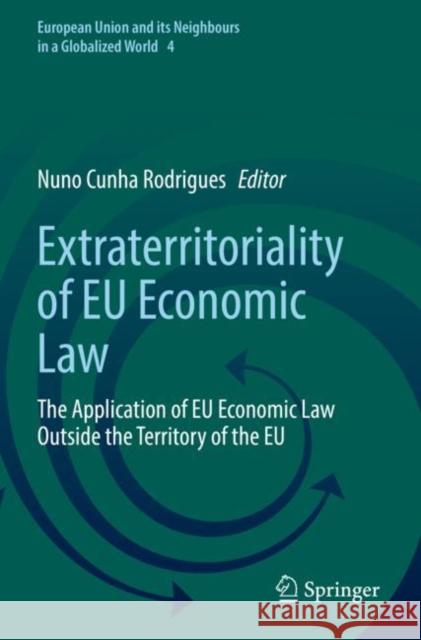Extraterritoriality of Eu Economic Law: The Application of Eu Economic Law Outside the Territory of the Eu » książka
topmenu
Extraterritoriality of Eu Economic Law: The Application of Eu Economic Law Outside the Territory of the Eu
ISBN-13: 9783030822934 / Angielski / Miękka / 2022
Extraterritoriality of Eu Economic Law: The Application of Eu Economic Law Outside the Territory of the Eu
ISBN-13: 9783030822934 / Angielski / Miękka / 2022
cena 685,93
(netto: 653,27 VAT: 5%)
Najniższa cena z 30 dni: 616,85
(netto: 653,27 VAT: 5%)
Najniższa cena z 30 dni: 616,85
Termin realizacji zamówienia:
ok. 22 dni roboczych.
ok. 22 dni roboczych.
Darmowa dostawa!
This book sheds new light on the potential application of EU law to situations arising outside EU territory, and its consequences. In today’s globalized world, EU law and the ECJ’s decisions have been calling for exceptions and defining new connecting elements that make the traditional approach of EU law, based on the territoriality principle, less straightforward. This is the case with e.g. the effects doctrine in the context of EU competition law, as was fully recognized after the ECJ’s Intel case. Moreover, recently approved rules concerning the EU’s internal market, EU environmental law and EU data protection law have made it more difficult to define the application of EU law in terms of a pure link to the territoriality principle.
The book examines these and other problems from the perspectives of various branches of EU economic law. With regard to EU competition law it presents, among others, studies on the evolution of the effects doctrine in the US and the EU; extraterritoriality of competition law; global cartels; merger control; state aid and cooperation between NCAs. Furthermore, it includes several studies concerning extraterritorial issues in trade relations between the EU and China; EU screening regulation of foreign direct investments; EU trade agreements; EU investment law and EU financial services.The twenty-one contributing authors are internationally respected experts on EU law.











